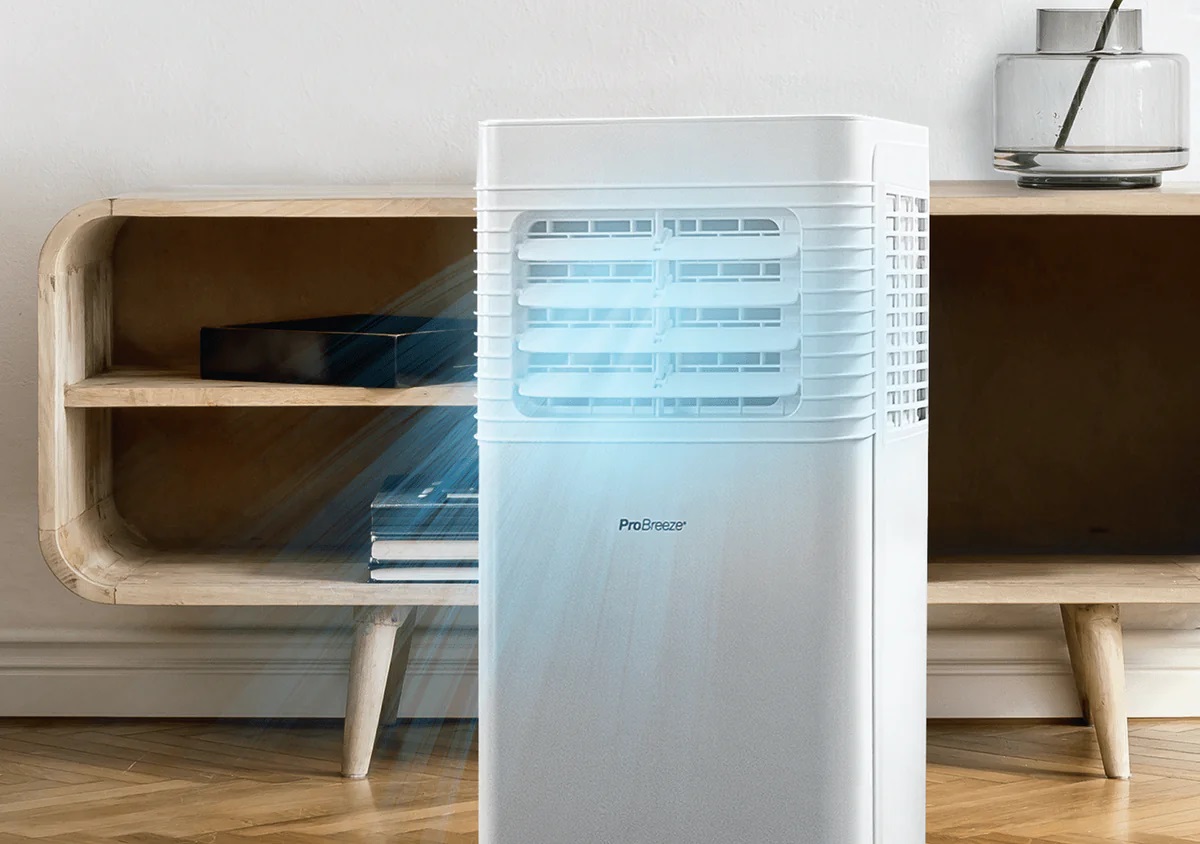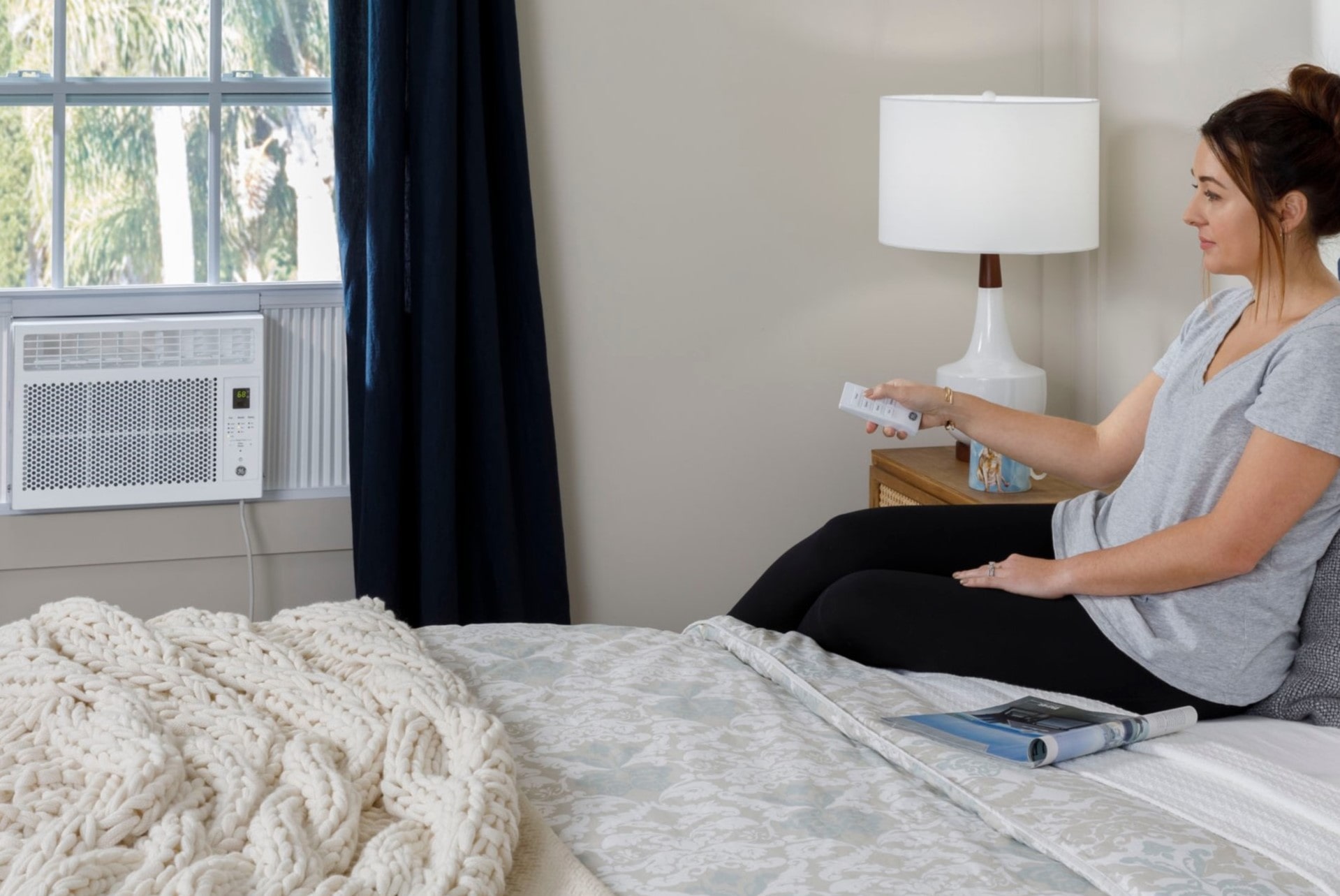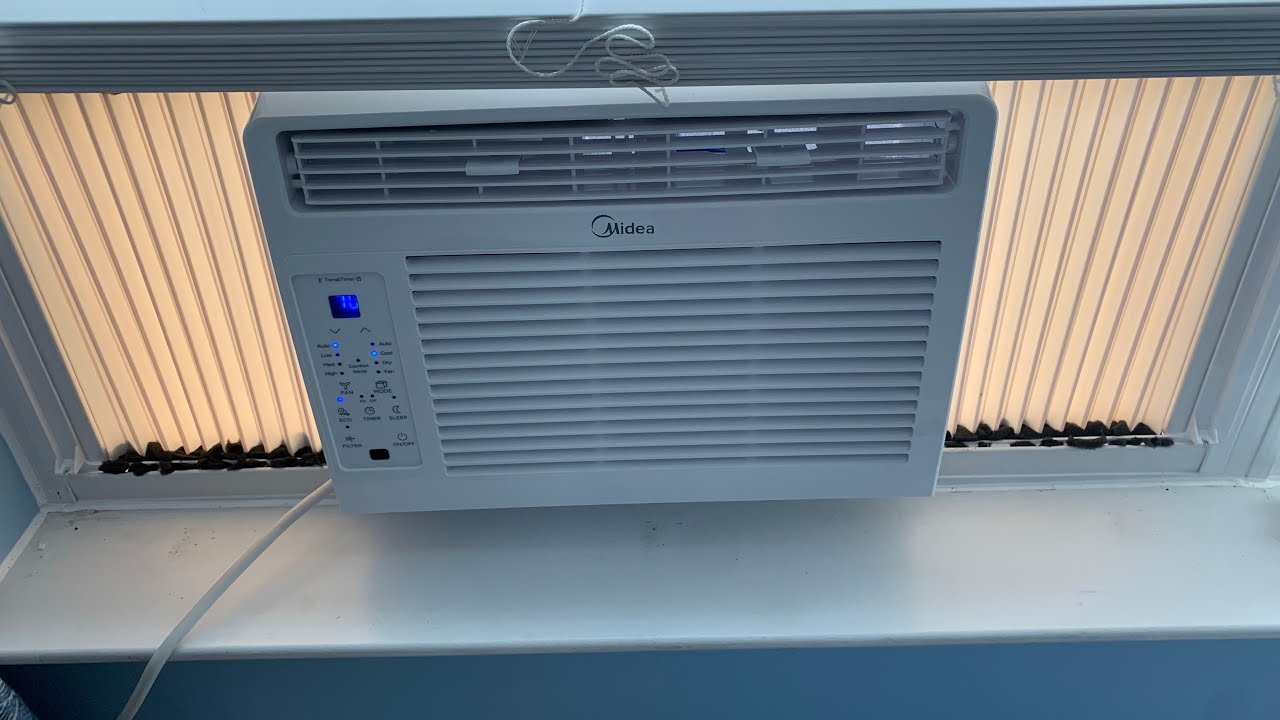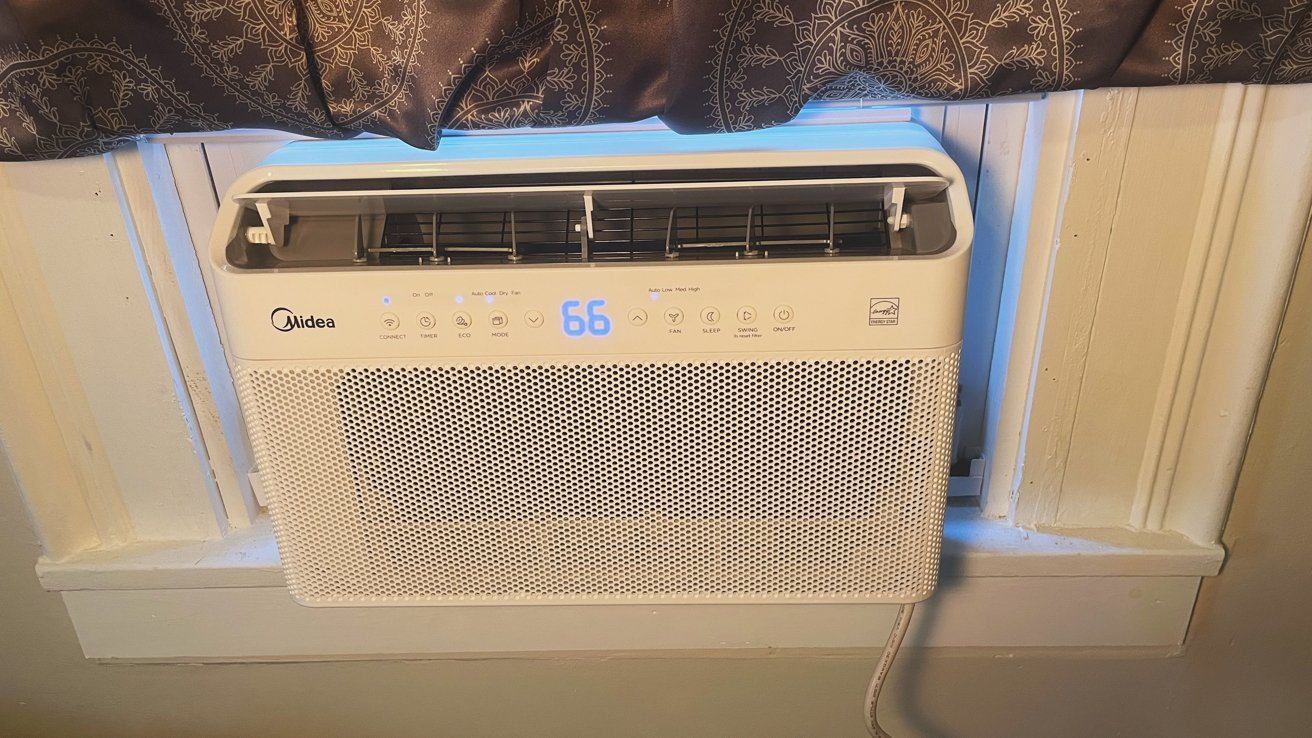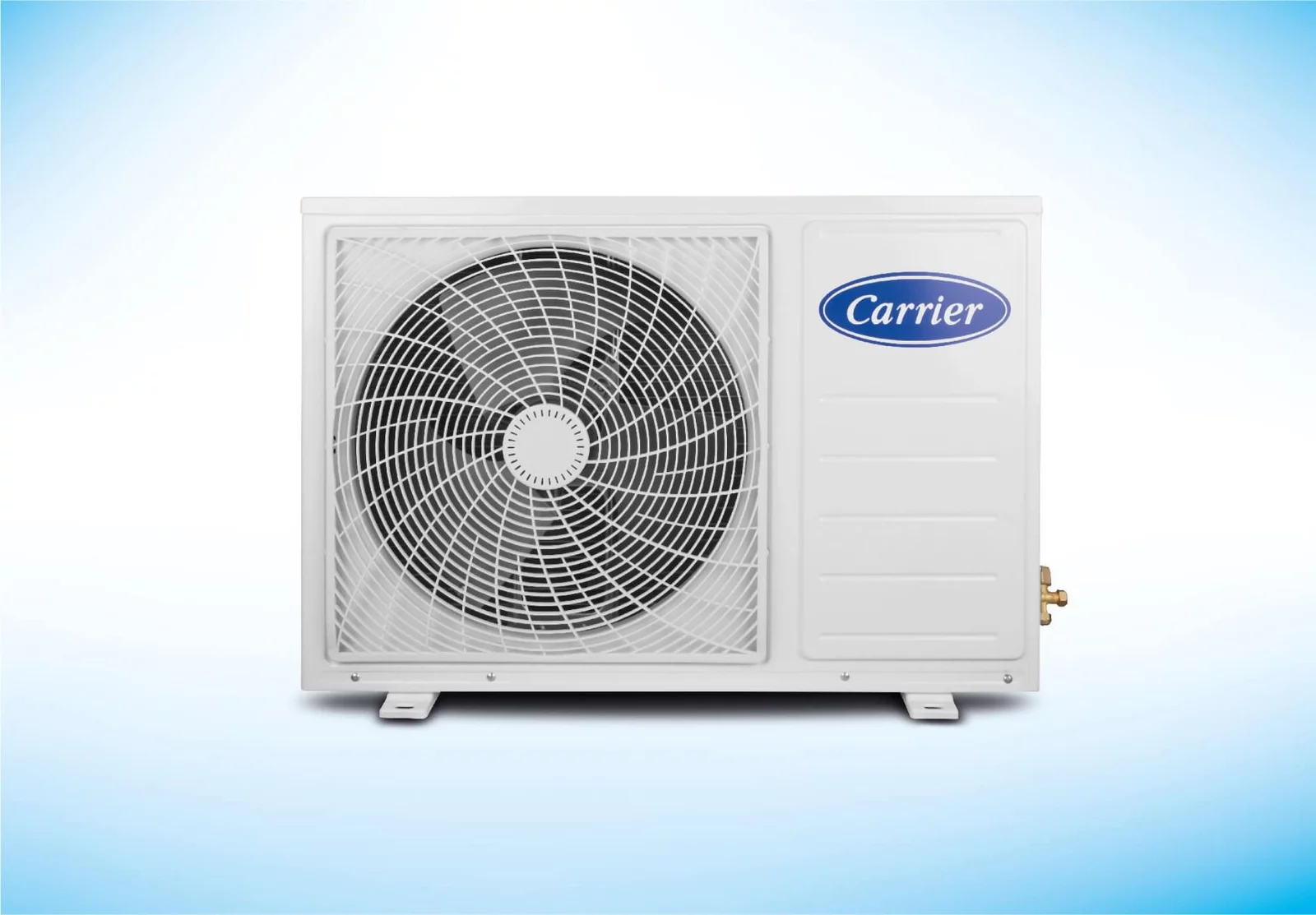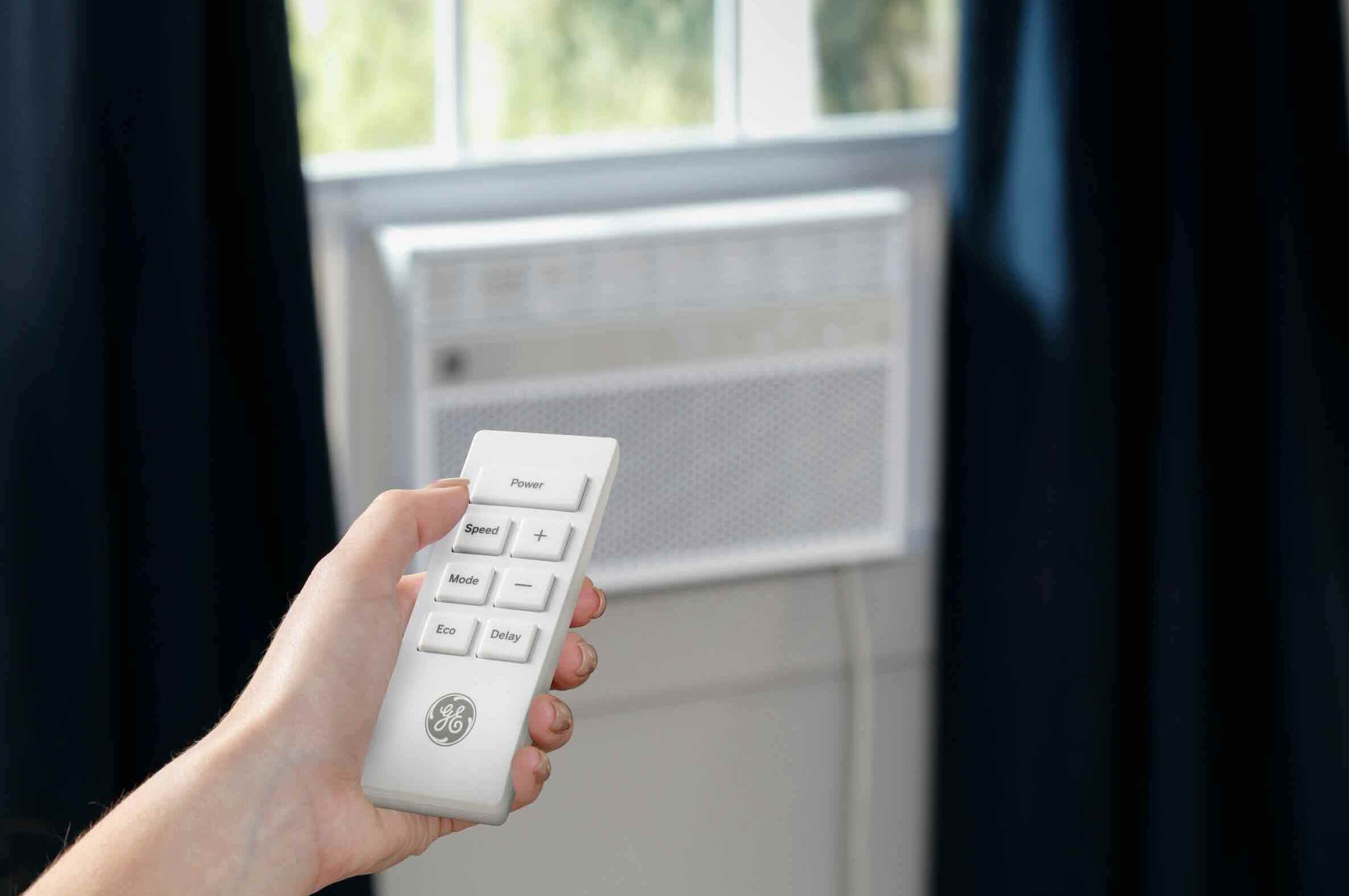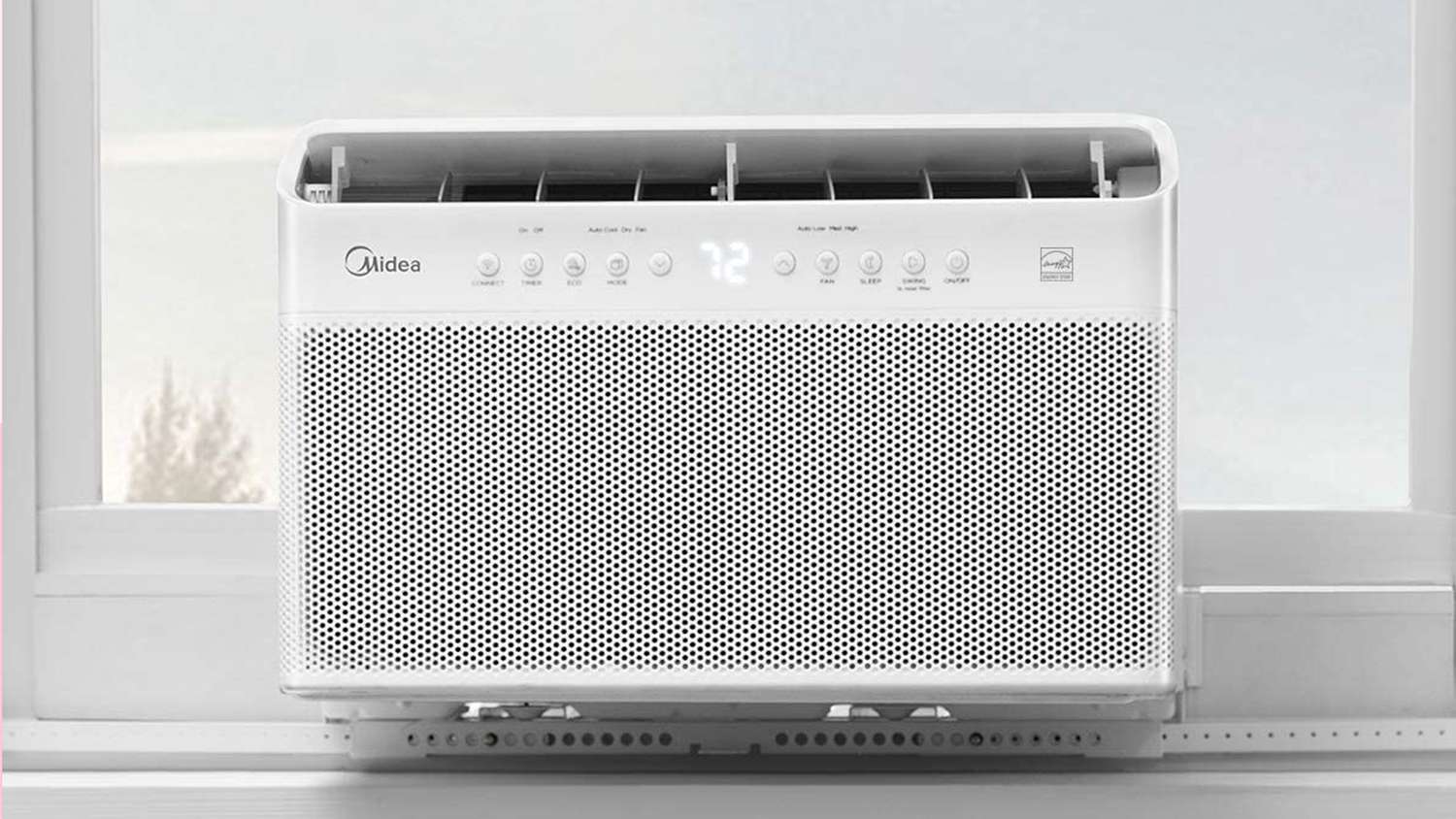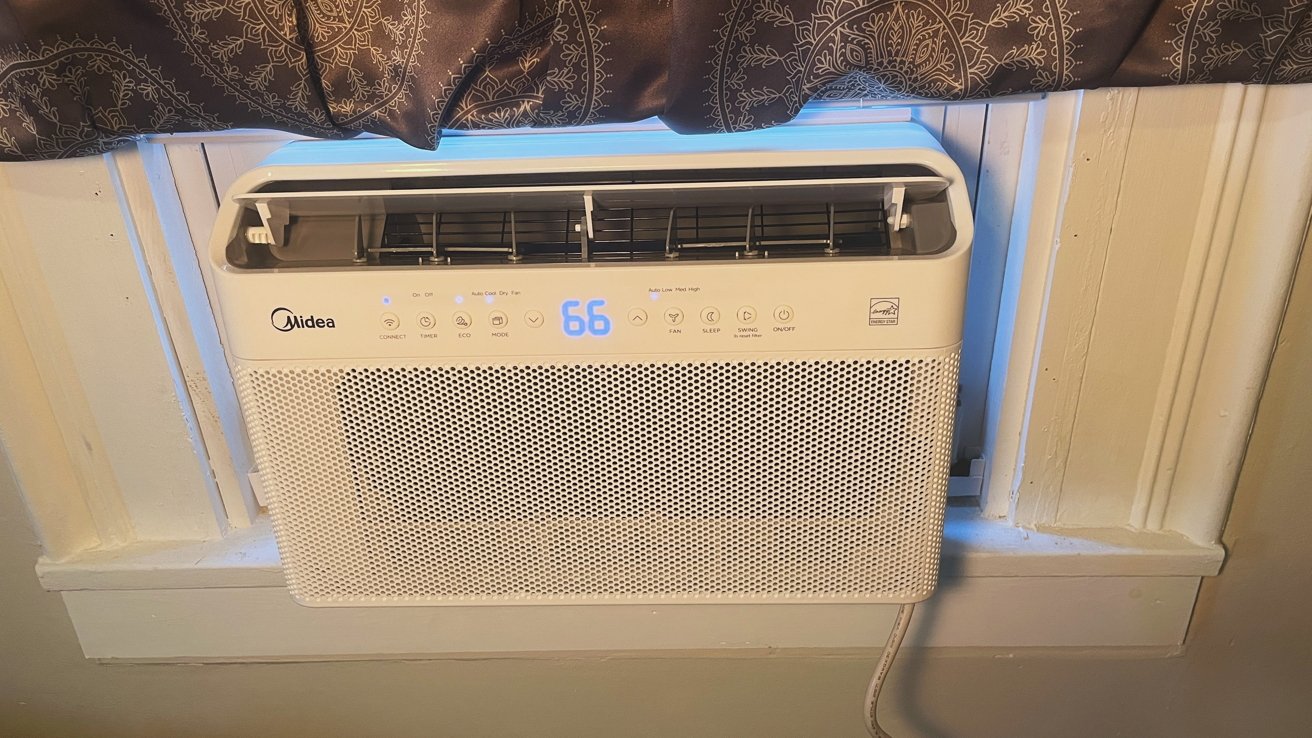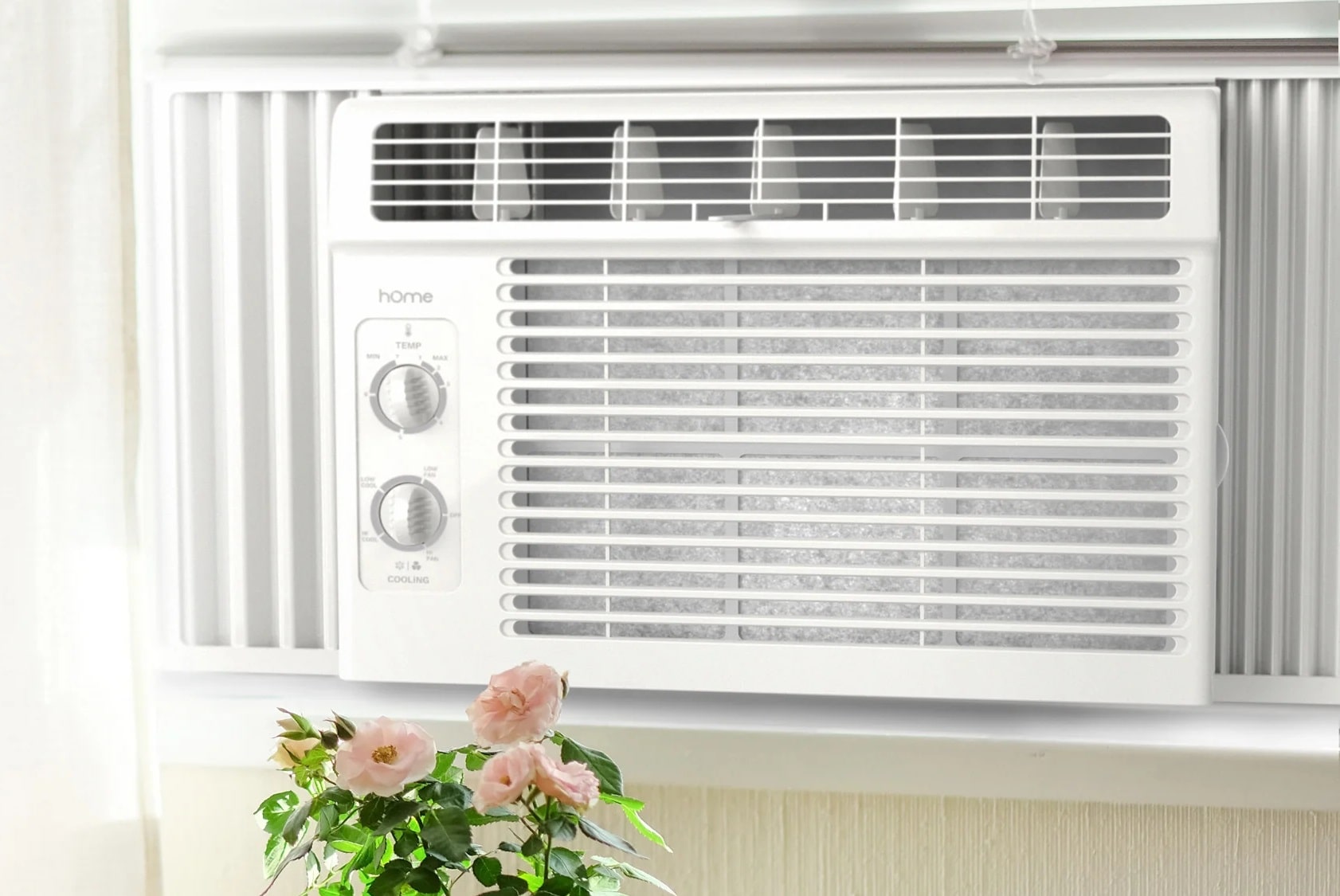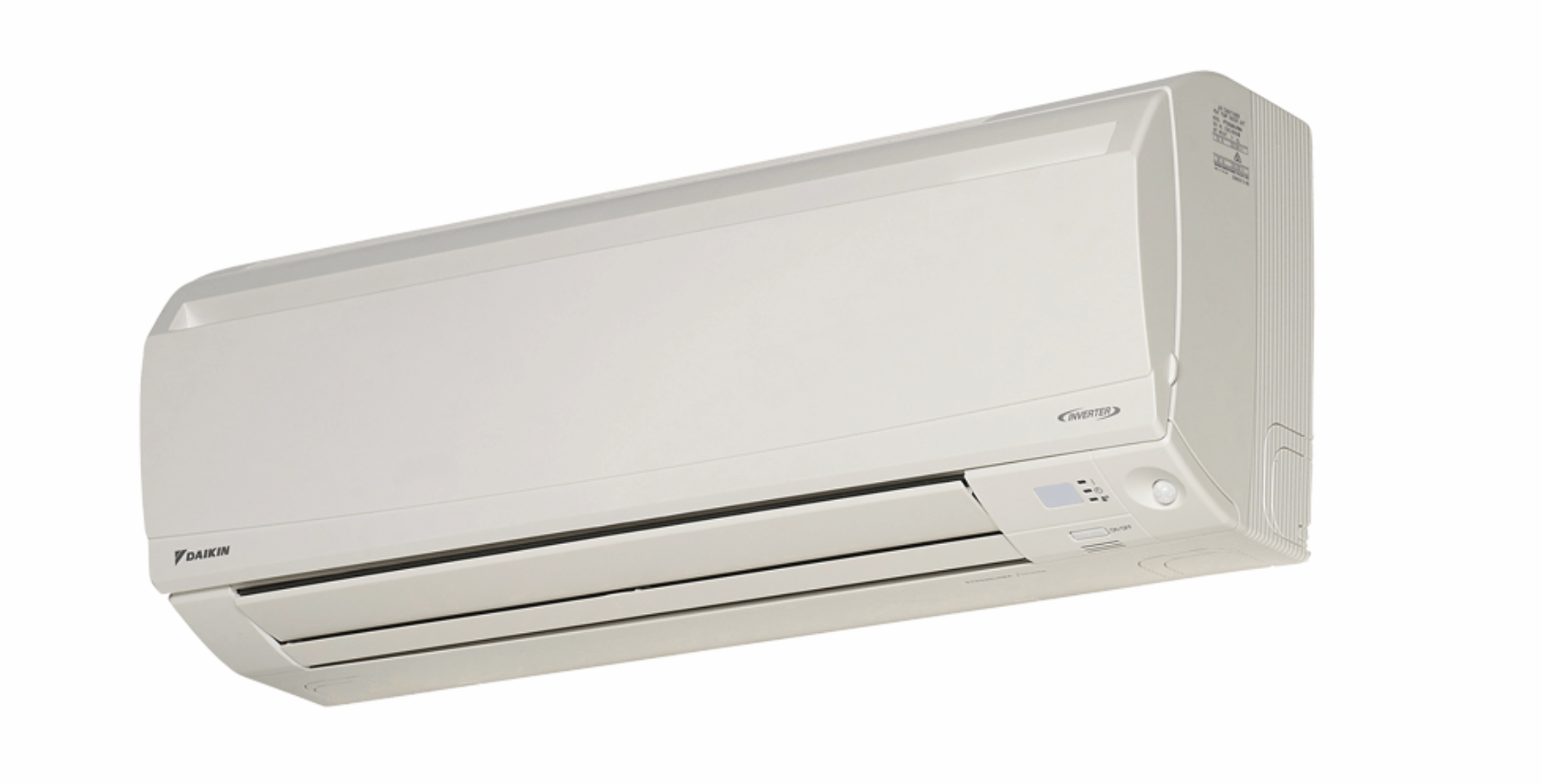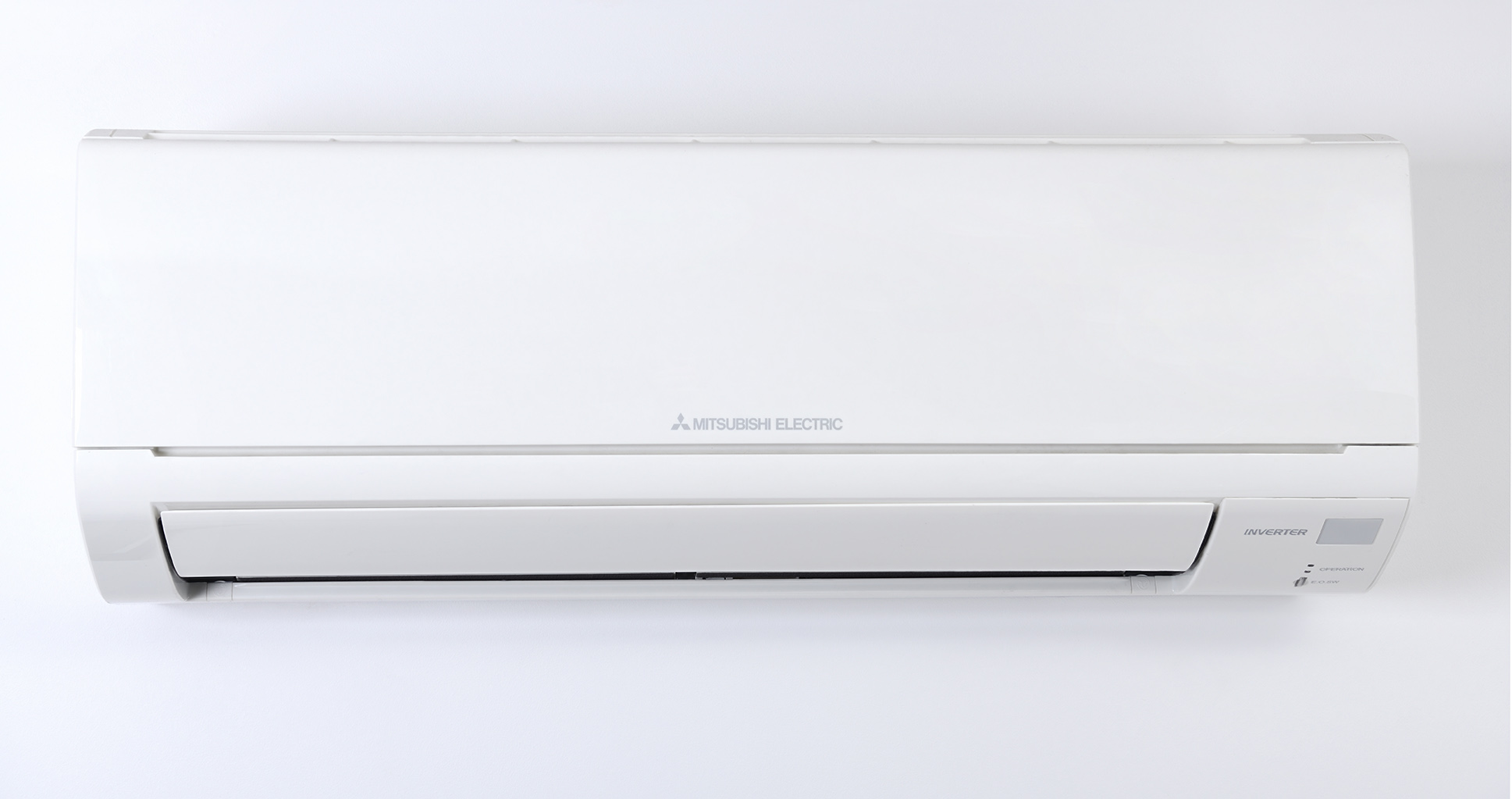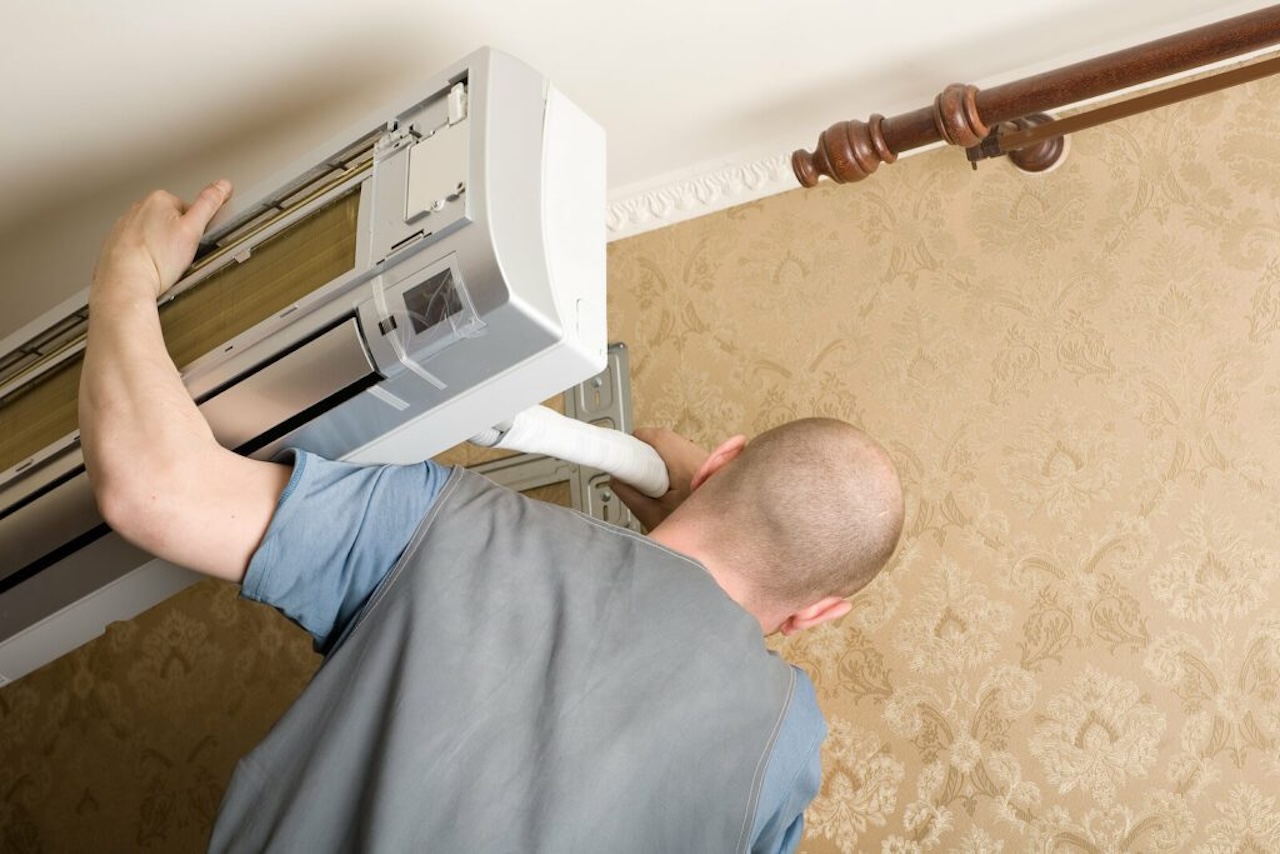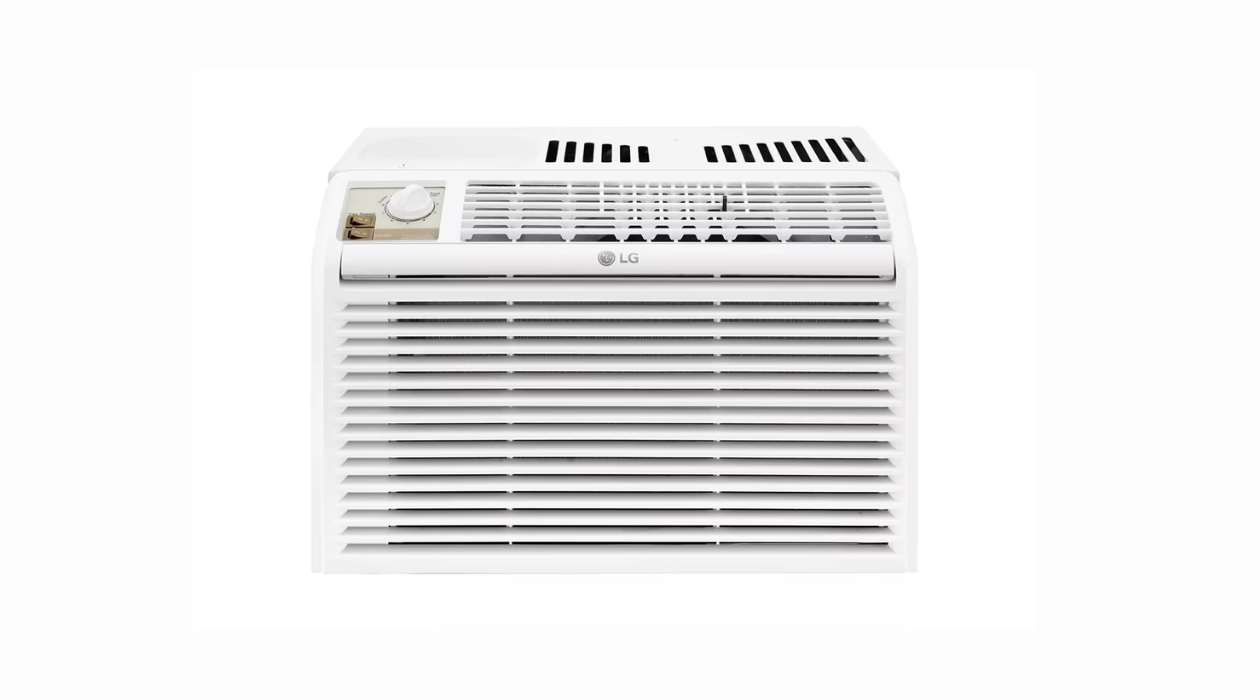Home>Home Maintenance>How Much Is An 8,000 Btu Air Conditioner
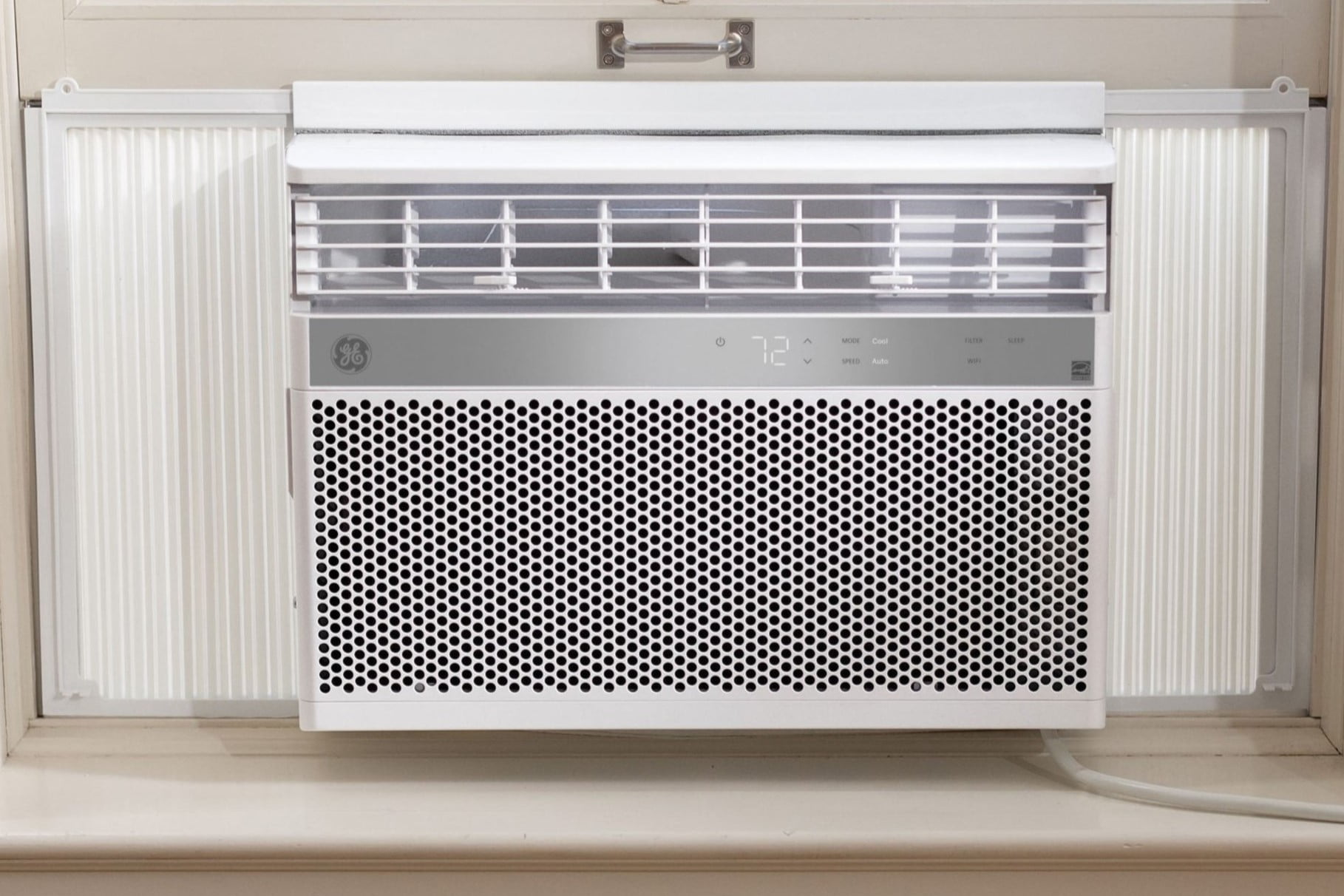

Home Maintenance
How Much Is An 8,000 Btu Air Conditioner
Modified: September 1, 2024
Looking to find out the cost of an 8,000 BTU air conditioner for your home? Discover the price of this home maintenance essential and stay cool all summer long.
(Many of the links in this article redirect to a specific reviewed product. Your purchase of these products through affiliate links helps to generate commission for Storables.com, at no extra cost. Learn more)
Introduction
Welcome to the world of home maintenance! Whether you’re a homeowner or a renter, taking care of your living space is essential for a comfortable and functional environment. One of the key components of home maintenance is keeping your air conditioning system in top condition. When it comes to cooling your home, air conditioner BTU (British Thermal Unit) ratings play a vital role.
Understanding BTU ratings is crucial when choosing the right air conditioner for your space. In this article, we will delve into the world of BTUs, specifically focusing on 8,000 BTU air conditioners. We will explore the factors that affect their pricing and provide you with valuable insights to help you make an informed decision.
So, before you make your next air conditioning purchase, let’s break down the world of BTUs and find out how much an 8,000 BTU air conditioner will cost you.
Key Takeaways:
- Choose the right 8,000 BTU air conditioner by considering room size, insulation, and additional heat sources. Balance cost with quality and features for optimal comfort and energy efficiency.
- Compare prices and brands to find the perfect 8,000 BTU air conditioner. Look for energy efficiency, warranty, and additional features to make an informed decision.
What is BTU?
Before we dive into the specifics of air conditioner BTU ratings, let’s start with the basics. BTU, or British Thermal Unit, is a unit of measurement commonly used to quantify thermal energy. In the context of air conditioners, BTU refers to the cooling capacity of the unit. It measures the amount of heat an air conditioner can remove from a space in one hour.
In simple terms, a higher BTU rating means a more powerful cooling capacity. The larger the area you need to cool, the higher BTU rating you will require to maintain a comfortable temperature.
It’s essential to choose an air conditioner with the appropriate BTU capacity for your space. If the BTU rating is too low, the air conditioner will struggle to cool the room effectively. On the other hand, if the BTU rating is too high, the air conditioner will quickly cool the room, but it may not remove humidity efficiently, resulting in a clammy environment.
Now that we have a basic understanding of BTUs, let’s explore in more detail how BTU ratings apply to air conditioners and how they can help you choose the right unit for your needs.
Understanding Air Conditioner BTU Ratings
Air conditioner BTU ratings are crucial when it comes to selecting the right cooling unit for your space. The BTU rating determines the cooling power or capacity of the air conditioner. The higher the BTU rating, the more cooling power the unit has.
It’s important to note that the BTU rating should match the size and cooling needs of the space you want to cool. For example, a small bedroom may only require an air conditioner with a lower BTU rating, while a large living room or an open-concept area may need an air conditioner with a higher BTU rating to effectively cool the entire space.
When it comes to determining the appropriate BTU capacity for your room, consider the following factors:
- Room Size: The size of the room is the most important factor. Larger rooms require air conditioners with higher BTU ratings to cool the space adequately. As a general rule of thumb, for every square foot of space, you will need approximately 20-25 BTUs. So, a room measuring 200 square feet would require a 4,000-5,000 BTU air conditioner, while a 400 square foot room would need an 8,000-10,000 BTU unit.
- Insulation: The insulation of the room also plays a role in the BTU capacity needed. If the room is well-insulated with proper sealing and insulation materials, you may be able to opt for a slightly lower BTU rating. However, if the room has poor insulation, consider choosing an air conditioner with a slightly higher BTU rating to compensate for the lack of energy efficiency.
- Number of Occupants: The number of people in the room can generate additional heat, which needs to be taken into account when determining the appropriate BTU rating. If the room regularly accommodates more than two people, you may need to increase the BTU capacity.
- Exposure to Sunlight: Rooms that receive direct sunlight for long periods of the day will be subjected to higher heat levels. In such cases, you may need to increase the BTU rating to counterbalance the additional heat generated by the sunlight.
- Other Heat Sources: If the room contains appliances or equipment that generates heat, such as computers, ovens, or projectors, consider adding the estimated heat output to the BTU calculation to ensure the air conditioner can handle the additional heat load.
By considering these factors, you can better understand the BTU capacity needed for your space and ensure that you select the right air conditioner to meet your cooling requirements.
Factors to Consider When Choosing BTU Capacity
When it comes to choosing the right BTU capacity for your air conditioner, several factors must be taken into consideration. These factors will help you determine the optimal BTU rating to ensure effective and efficient cooling of your space. Let’s explore them in detail:
- Room Size: The size of the room is a crucial factor in determining the BTU capacity needed. As mentioned earlier, the larger the room, the higher the BTU rating required to cool the space adequately. Measure the dimensions of the room and use the square footage to guide your selection.
- Climate: The climate in your area also plays a role in determining the appropriate BTU rating. If you live in a hot and humid climate, you may need to select an air conditioner with a higher BTU rating to combat the higher temperature and humidity levels.
- Insulation: The insulation of your space is essential for maintaining a comfortable temperature. Well-insulated rooms retain cool air more effectively. If your room has good insulation, you may be able to select an air conditioner with a slightly lower BTU rating. However, if your space is poorly insulated, opt for a higher BTU rating to compensate for potential energy loss.
- Window Placement: The location of windows in the room can impact the BTU capacity needed. Rooms with windows that receive direct sunlight for extended periods may require a higher BTU rating to counter the extra heat. Additionally, if windows are poorly sealed, it may lead to air leakage, which can affect the efficiency of the air conditioner.
- Occupancy: The number of people occupying the room is an important consideration. More occupants generate body heat and increase the overall temperature in the space. If you regularly have a large number of people in the room, it’s advisable to select an air conditioner with a higher BTU rating to maintain a comfortable temperature.
- Heat-Generating Appliances: Take into account any heat-generating appliances or equipment in the room, such as computers, lamps, or kitchen appliances. These devices can contribute to the overall heat load and impact the cooling requirement. Consider their heat output and factor it into your BTU calculation.
- Special Requirements: If you have specific cooling requirements, such as a room with high humidity levels or a need for rapid temperature control, you may need to select an air conditioner with a higher BTU rating to meet those needs.
By carefully considering these factors, you can determine an appropriate BTU capacity for your air conditioner. Taking into account the unique characteristics of your space will help ensure efficient and effective cooling, providing a comfortable environment for your home.
How Much Cooling Power Do You Need?
Now that you understand the factors to consider when selecting the BTU capacity of an air conditioner, let’s delve into determining how much cooling power you actually need for your space. By calculating the cooling power required, you can narrow down your options and find the most suitable air conditioner.
To calculate the cooling power needed, follow these steps:
- Measure the Room: Measure the dimensions of the room, including the length, width, and height. Multiply these values to determine the total cubic footage of the room.
- Use the Square Footage Method: As a general rule of thumb, you’ll need approximately 20-25 BTUs per square foot. Multiply the square footage of the room by the appropriate BTU value to get an estimate of the cooling power required.
- Adjust for Special Conditions: Consider the factors we discussed earlier, such as insulation, window placement, occupancy, and heat-generating appliances. Adjust the BTU value accordingly. For example, if the room receives a lot of direct sunlight or has poor insulation, you may need to increase the BTU rating.
- Consider In-between BTU Ratings: Air conditioners are generally available in standard BTU ratings. If your calculated BTU requirement falls between two standard ratings, it’s advisable to choose the higher BTU rating to ensure sufficient cooling power.
- Consult with an Expert: If you’re still unsure about the cooling power you need, it’s always a good idea to consult with a professional. They can assess your space, take into account any specific requirements, and provide expert advice on the best BTU capacity for your air conditioner.
By going through these steps, you can get a good estimate of the cooling power you need for your space. This will help you select an air conditioner with the appropriate BTU rating, ensuring optimal cooling and energy efficiency.
When choosing an 8,000 BTU air conditioner, consider the size of the room you want to cool. A general rule is that you need about 20 BTUs per square foot, so an 8,000 BTU unit is suitable for a room up to 400 square feet.
Cost of an 8,000 BTU Air Conditioner
When it comes to the cost of an 8,000 BTU air conditioner, several factors come into play. The price can vary depending on the brand, features, energy efficiency, and additional components it may include. On average, you can expect to pay between $200 and $600 for an 8,000 BTU air conditioner.
The cost of an air conditioner is influenced by various factors, including:
- Brand and Quality: Well-known brands with a reputation for quality may have a higher price tag. These brands often offer reliable performance, better warranties, and advanced features.
- Energy Efficiency: Air conditioners with higher energy efficiency ratings, such as units with an Energy Star certification, tend to have a higher cost upfront. However, they can save you money in the long run through reduced energy consumption.
- Features and Technology: Air conditioners with additional features such as remote controls, programmable timers, sleep modes, and smart connectivity may be priced higher than basic models.
- Noise Level: Some air conditioners are designed to operate quietly, which can be a desirable feature for those who value a noise-free environment. These units may have a higher cost due to the advanced technology used to reduce noise levels.
- Installation and Additional Components: The cost of the air conditioner itself does not include installation or any additional components required for installation, such as mounting brackets or insulation. These additional costs should be taken into account when budgeting for your air conditioner.
It’s important to balance cost with the quality and features you desire. While a lower-priced air conditioner may save you money upfront, it may not offer the same energy efficiency or performance as a higher-priced unit. Consider your cooling needs, budget, and desired features to make an informed decision.
Additionally, keep in mind that prices may vary based on location and seasonal demand. It’s always a good idea to shop around, compare prices from different retailers, and consider online options to find the best deal on an 8,000 BTU air conditioner that meets your requirements.
Remember, investing in a reliable and efficient air conditioner can provide long-term comfort and savings on your energy bills. Take the time to research and choose a unit that offers the right balance of price and performance for your specific needs and preferences.
Factors Affecting the Price of an 8,000 BTU Air Conditioner
When considering the price of an 8,000 BTU air conditioner, it’s essential to understand the various factors that can influence the cost. By understanding these factors, you can make an informed decision and choose the air conditioner that best fits your needs and budget.
Here are the key factors that can affect the price of an 8,000 BTU air conditioner:
- Brand: The brand of the air conditioner plays a significant role in determining the price. Well-established and reputable brands often have higher price points due to their brand recognition, quality, and reliability.
- Energy Efficiency: Air conditioners with higher energy efficiency ratings, such as those with Energy Star certification, tend to have a higher upfront cost. However, they can result in long-term savings on energy bills, making them a worthwhile investment.
- Features and Technology: Air conditioners that offer advanced features and technologies, such as Wi-Fi connectivity, smart controls, auto-adjusting thermostats, and sleep modes, generally come with a higher price. These additional features can enhance convenience and comfort.
- Build Quality: The build quality and materials used in an air conditioner can impact the price. Units made with high-quality components and durable materials may come with a higher price tag but offer better longevity and reliability.
- Noise Level: Air conditioners designed to operate quietly, with noise-reducing technology, may cost more than units with standard noise levels. Quieter operation can be desirable for those who value a peaceful and quiet environment.
- Warranty: The length and coverage of the warranty provided by the manufacturer can impact the price. Air conditioners with longer and more comprehensive warranties may be priced higher due to the added assurance and support they offer.
- Additional Components: The price of the air conditioner may not include additional components required for installation, such as mounting brackets or insulation. These additional components should be considered when calculating the total cost of the air conditioner.
It’s important to prioritize your specific needs and consider the features that are most important to you. While a higher-priced unit may offer more advanced features and benefits, it may not always be necessary for everyone. Consider factors such as your budget, cooling requirements, and desired features when making your decision.
Comparing prices from different retailers, both online and in-store, can also help you find the best deal on an 8,000 BTU air conditioner. Keep in mind that prices may also vary depending on your location and seasonal demand. Taking the time to research and compare your options will ensure you make a well-informed purchase within your budget.
By considering these factors, you can weigh the price against the features, quality, and long-term savings potential to determine the best value for your investment in an 8,000 BTU air conditioner.
Comparing Prices and Brands
When it comes to purchasing an 8,000 BTU air conditioner, it’s important to consider both the prices and the brands available in the market. Comparing prices and brands allows you to find the perfect balance between quality, features, and affordability. Here are some tips to help you make an informed decision:
- Research Multiple Brands: Start by researching various brands that offer 8,000 BTU air conditioners. Look for reputable brands with a positive track record for performance and customer satisfaction. Consider factors like reliability, build quality, and available features.
- Compare Prices: Once you have identified a few brands that meet your criteria, compare prices from different retailers. Check both online and brick-and-mortar stores to see if there are any ongoing promotions, discounts, or seasonal sales. Keep in mind that prices can vary, so it’s worth taking the time to shop around to find the best deal.
- Consider Energy Efficiency: Look for air conditioners with good energy efficiency ratings, as they can save you money on your energy bills in the long run. Compare the energy efficiency ratings of different models and consider whether the potential savings justify a higher initial cost.
- Read Reviews: Customer reviews and ratings can provide valuable insights into the performance and reliability of different air conditioner models. Reading reviews can help you gauge the overall satisfaction of other homeowners who have purchased the same product.
- Check Warranty: Look for air conditioners that come with a warranty, as it provides peace of mind in case of any issues or defects. Compare the length and coverage of the warranties offered by different brands to ensure you are protected in case of any unexpected problems.
- Consider Additional Features: Take note of the additional features offered by each brand. Consider which features are important to you, such as remote control, adjustable thermostats, or sleep modes. Compare the availability and functionality of these features across different brands.
- Seek Expert Advice: If you’re still unsure about which brand and model to choose, consider consulting with HVAC professionals or experienced technicians. They can provide valuable insights and recommendations based on their expertise and industry knowledge.
By carefully comparing prices and brands, you can find the best combination of quality, price, and features for your 8,000 BTU air conditioner. Remember to prioritize your specific needs and preferences, and don’t hesitate to reach out for expert advice if necessary. With thorough research and consideration, you can make an informed decision and enjoy the benefits of a reliable and efficient air conditioning system.
Conclusion
Choosing the right air conditioner for your home is crucial for maintaining a comfortable and cool environment, especially during the hot summer months. When it comes to 8,000 BTU air conditioners, understanding their BTU ratings and factors that affect their pricing is essential in making an informed decision.
Throughout this article, we’ve explored the world of air conditioner BTU ratings, the factors to consider when choosing the BTU capacity, and how to calculate the cooling power you need for your space. We’ve also discussed the cost range of 8,000 BTU air conditioners, the factors that can influence the price, and the importance of comparing prices and brands.
Remember, when selecting an air conditioner, it’s important to consider the size of your room, the climate in your area, the insulation and window placement, and the number of occupants. Taking these factors into account will help you determine the appropriate BTU capacity for effective cooling.
Additionally, factors such as brand reputation, energy efficiency, features, and warranty should be considered when comparing prices and brands. By balancing quality, features, and affordability, you can find the perfect air conditioner that meets your needs and budget.
Ultimately, investing in a reliable and efficient 8,000 BTU air conditioner will provide you with the cooling power necessary to create a comfortable living space. Be sure to prioritize energy efficiency, reliability, and comfort features to enhance your overall experience.
Take the time to research, compare prices, read reviews, and consult with professionals if needed. By doing so, you can make an informed decision and enjoy the benefits of a well-cooled home. Stay cool, stay comfortable, and enjoy the peace of mind that comes with a properly chosen air conditioner.
Frequently Asked Questions about How Much Is An 8,000 Btu Air Conditioner
Was this page helpful?
At Storables.com, we guarantee accurate and reliable information. Our content, validated by Expert Board Contributors, is crafted following stringent Editorial Policies. We're committed to providing you with well-researched, expert-backed insights for all your informational needs.
